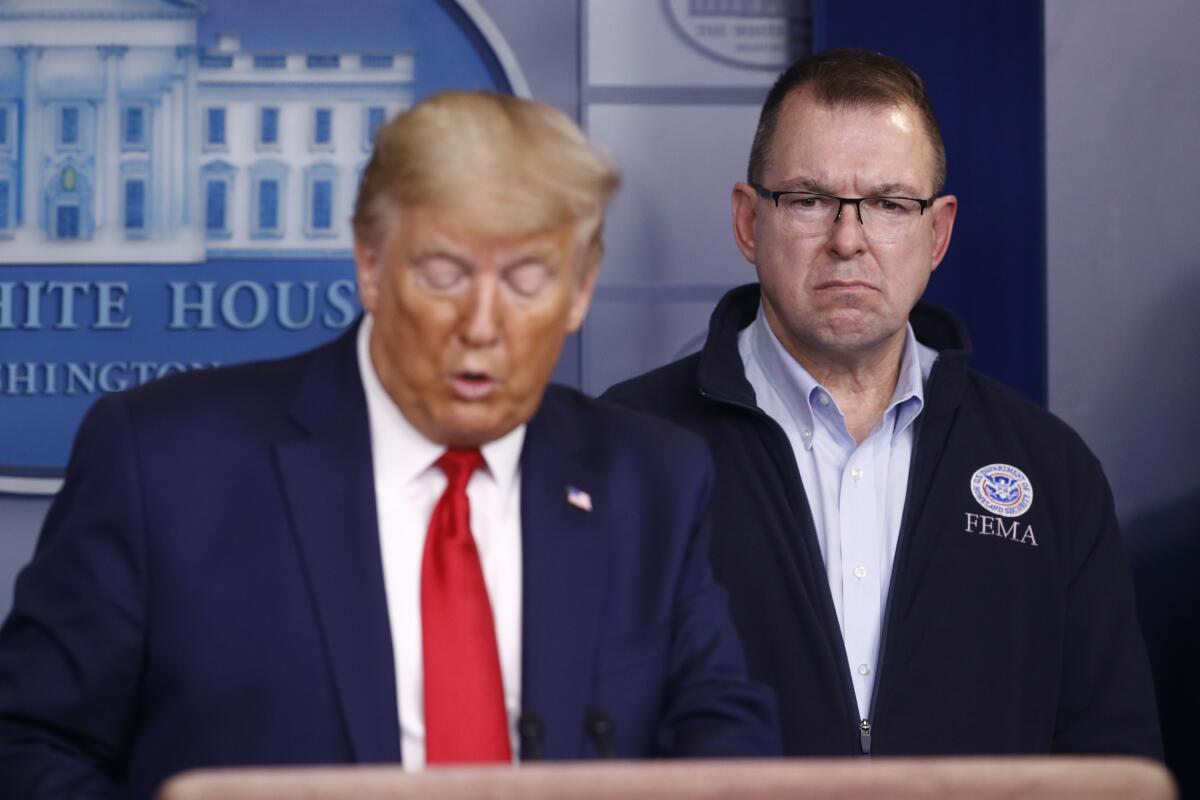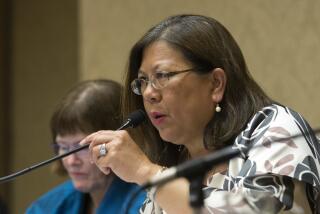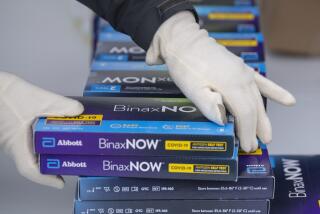Trump administration blocks public disclosure on coronavirus supplies

- Share via
WASHINGTON — The Trump administration is refusing to disclose how it is distributing medical supplies for the coronavirus response that were brought to the U.S. at taxpayer expense through a White House initiative known as Project Air Bridge.
The administration instead has allowed six multibillion-dollar medical supply companies that are receiving government aid to import the supplies to block public release of the data, according to the Federal Emergency Management Agency.
“At this time, FEMA does not have the authority to release this information,” a spokesperson for the agency said in response to questions from The Times.
A spokesperson for McKesson Corp., one of the companies, denied making any demand that information be kept secret. “Consistent with McKesson’s commitment to fighting this pandemic, McKesson is cooperating with FEMA to facilitate the release of state-by-state data as appropriate,” the spokesperson said.
Nevertheless, the lack of disclosure effectively hinders any public accounting of which states are receiving the most assistance and what formulas are being used to distribute the equipment, despite a public investment of tens of millions of dollars in the airlift operation.
The lack of transparency about distributions comes on top of the administration’s refusal to provide information about the financial terms the White House struck with the medical distribution companies, which together reported more than $2 billion in profits last year.
And it parallels a similar reluctance by the administration to detail how it distributed supplies from the Strategic National Stockpile at the outset of the coronavirus outbreak. That information only came to light after an investigation by the House oversight committee.
None of the other supply companies involved in Project Air Bridge — which include Cardinal Health Inc., Medline Industries Inc., Henry Schein Inc., Owens & Minor Inc. and Concordance Healthcare Solutions LLC — responded to questions about releasing the data.
President Trump and other administration officials have hailed Project Air Bridge, which the president’s son-in-law Jared Kushner helped establish, as a public-private partnership that is helping to alleviate shortages of masks and other protective equipment at U.S. hospitals, clinics and other medical facilities by importing them from China, which is the world’s primary manufacturer of such goods.
The program, which the White House calls Project Air Bridge and which FEMA calls Project Airbridge, has allowed the nation’s six largest medical distribution companies to fly their supplies from China to the U.S. rather than relying on slower cargo ships.
The federal government pays air freight companies, including FedEx, UPS and Radiant Logistics Inc., for the trans-Pacific flights, which come into Los Angeles, New York, Chicago and other distribution hubs.
The participating medical-supply distribution companies then send half of the shipments to customers in coronavirus hot spots and can send the remaining half to their existing customers elsewhere in the country, according to FEMA.
A FEMA spokesperson said the supply companies have allowed the federal agency to share some information with state governors.
“FEMA requested, and received, permission from the Project Airbridge distributors to be able to share detailed state-by-state personal protective equipment orders/deliveries with governors,” the spokesperson said. “This was done so each governor could use this information for their emergency management purposes and to better understand the burn rate of the equipment.”
In addition to obscuring where supplies are going, the Trump administration also hasn’t offered a financial accounting of how much the airlift project costs.
FEMA required The Times to file a Freedom of Information Act request to get copies of any contracts or other financial agreements with the participating companies, a process that can take weeks or months.
More to Read
Get the L.A. Times Politics newsletter
Deeply reported insights into legislation, politics and policy from Sacramento, Washington and beyond. In your inbox three times per week.
You may occasionally receive promotional content from the Los Angeles Times.











